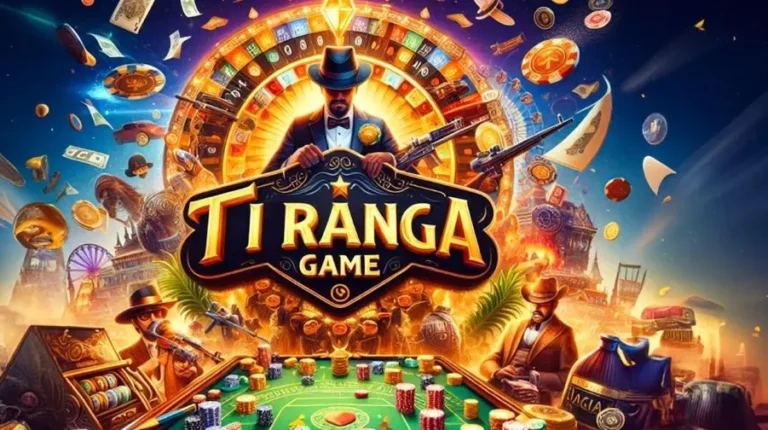Revenge Betting: When Sports Get Personal
Your team just blew a 14-point lead in the final quarter. You’re furious. The refs missed obvious calls, the coach made terrible decisions, and your $50 bet just evaporated. So you immediately bet $100 against that same team next week. “They don’t deserve my support,” you think.
Welcome to revenge betting—the expensive emotional response that turns sports fans into broke sports bettors. Here’s why this happens and how to recognize it before it destroys your bankroll.
Smart sports betting starts with choosing reliable platforms. Nordic Bet offers comprehensive sports coverage with competitive odds across football, tennis, basketball, and more. Their welcome offer includes a 100% bonus plus a 20€ free bet, and features like Cash Out let you cut losses before emotions take over completely.
What Revenge Betting Looks Like
Revenge betting isn’t just betting against your favorite team after a loss. It’s any wager driven by emotional payback rather than logical analysis.
Classic revenge scenarios:
- Betting against a team that just beat your bet
- Increasing bet sizes after consecutive losses
- Targeting teams you personally dislike, regardless of matchup quality
- Chasing losses with “guaranteed” bets on heavy favorites
The emotional logic feels sound: “If this team screwed me once, I’ll profit when they inevitably screw up again.” But revenge betting selects targets based on feelings, not probability.
The Psychology Behind the Spiral
Revenge betting stems from a need to regain control after randomness defeats your prediction. Sports outcomes often feel unfair—missed field goals, referee decisions, freak injuries. Your brain craves a way to “balance the scales.”
The dangerous thought pattern:
- “That loss wasn’t fair”
- “This team will get exposed eventually”
- “I’ll be there to profit when karma strikes”
- “This bet will make me feel better about the loss”
Step 4 reveals the real problem. You’re betting not to make money but to manage emotions. That’s expensive therapy.
How Bad Teams Become Your Worst Investments
Revenge betting creates irrational loyalty to betting against specific teams. You develop personal vendettas against franchises based on past disappointments rather than current form.
Bad teams become especially expensive revenge targets. You assume terrible franchises will stay terrible, but NFL parity means even bottom-tier teams win 25-30% of games. Betting against them every week guarantees eventual losses.
The Doubling Down Trap
Revenge betting escalates quickly. One emotional loss leads to a bigger emotional bet to “break even.” That loss leads to an even bigger bet. Soon, you’re betting amounts that threaten your entire bankroll on games you barely researched.
Escalation example: Lost $25 on Ravens. Bet $50 against them next week and lost. Bet $100 against them the following week—lost again. Now I’m down $175 and making progressively worse decisions based purely on spite.
The math becomes impossible. To break even after three losses, your fourth bet needs odds that rarely exist for quality teams you’re targeting for revenge.
Spotting Your Revenge Patterns
Revenge betting feels logical in the moment because you can rationalize any wager with selective statistics. Here are the warning signs I learned to recognize:
Your inner monologue changes: When you catch yourself saying “This team deserves to lose” or “They can’t keep getting lucky,” you’ve crossed from analysis into emotional territory. Analytical thinking focuses on matchups and probabilities, not cosmic justice.
Your bet sizes jump around: I noticed my revenge bets were consistently 30-50% larger than normal wagers. When you’re emotionally invested in seeing a team fail, you unconsciously increase the stakes to match your feelings.
Selective research: You only look for statistics that support betting against your target while ignoring contrary evidence.
Timeline patterns: Multiple bets against the same team within a short period, especially after losses, signal revenge betting.
If you find yourself making too many emotional sports bets, switching to casino games temporarily can help. Resources about popular slots can guide you toward games with better odds and less emotional investment than sports betting.
Self-check question: If this were a random team you had no history with, would you still make this bet at this size? If the answer is no, you’re probably betting on emotions.
Breaking the Revenge Cycle
The solution is to recognize when emotions are driving financial decisions and implement safeguards.
Cooling-off periods: I instituted a 24-hour rule after any loss over $50. No new bets until the next day when emotions settle.
Revenge bet tracking: Keep a separate record of any bet motivated by payback emotions. Seeing the financial damage in black and white provides a sobering perspective.
Team blacklists: Identify teams you have emotional relationships with and increase your research standards for any bets involving them.
* * *
Channel competitive emotions into research rather than larger bets. Use your anger about a bad loss to dig deeper into why it happened and whether similar situations create betting value.
Your emotional investment in sports can enhance analysis if directed properly. Just don’t let it drive your wallet.
Also Read-More Than Marbles: The Cultural Legacy of the Daman Game






